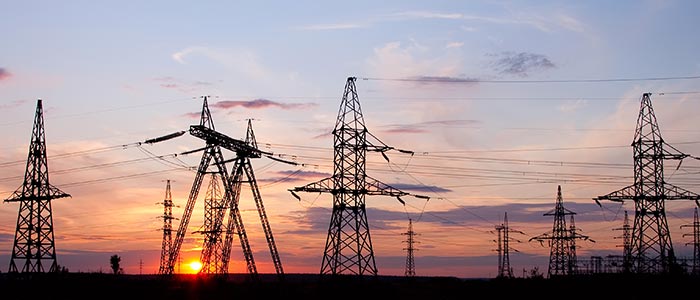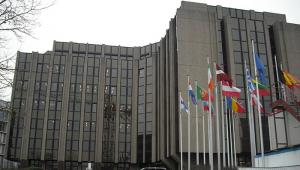A European Court of Auditors report issued this morning noted that plans for an integrated, EU-wide energy market have stalled.
The European Commission had planned to develop an interconnected, internal energy network to secure energy supplies, shift to renewables and lessen dependence on external suppliers. The network was due to be completed last year, but still faces significant challenges.
According to the ECA, the project cost €3.7bn between 2007 and 2013 and a further €7.4bn is expected to be spent between 2014 and 2020. Despite this significant budget commitment, plans for the European Commission’s Third Energy Package remain far from complete.
Phil Wynn Owen, the ECA member responsible for the report, told Public Finance International energy security is “vital for Europe in an uncertain world” and that we “must complete the internal energy market and share the energy and infrastructure we already have”.
Security over energy supply has become a major issue in Europe, with mounting concern over the risks associated with dependence on external suppliers and states through which supplies travel. A change of political circumstances in either could result in major disruptions to Europe’s energy supply.
Changes in demand patterns and a move towards renewable sources, especially potent after the outcomes of the recent climate talks in Paris, also raise different challenges for ensuring a continuous and secure supply of energy.
The commission’s Third Energy Package would work to overcome these by creating a regulatory and infrastructure set up that facilitates the free flow and borderless trade of gas and electricity between EU member states.
All EU member states have signed up to the package and have successfully introduced the legislation it entails into national law.
However, the auditors said no member states have a “clean paper” for wholeheartedly implementing those laws today, with over 20 member states either currently subject to or in the process of being subject to infringement procedures.
Wynn Owen noted that many member states are still choosing to pursue policies that are often “perfectly rational” when thinking of that individual state’s security, but are not conducive to collective security. This can create distortions in markets and pricing in the internal market.
He emphasised that the “whole is greater than the sum of its parts”. For example, as the EU moves towards more sustainable forms of energy in line with the outcomes of COP21, an interconnected market would enable member states to share energy supply and risk and, if they are an energy producer, increase their trading.
“If you join up markets you end up with a broader geographical area. If the sun is not shining in one place across a very broad European market, the wind might be blowing somewhere else,” he told PF International.
“By developing greater, more joined-up networks, you make better use of the existing energy sources and infrastructure, enable those with a competitive advantage, be it in wind or solar, to maximise their trading with other member states in an open and transparent way and over time you get more conformity in wholesale prices and a better deal for consumers.”
Other barriers to the successful completion of the internal energy market include infrastructure that is not yet designed for an integrated system, significant differences in how member states organise their energy markets and a lack of cooperation between neighbouring states.
Some member states are failing to protect their most vulnerable consumers and some interconnected national policies, such as on innovation, the labour market, or the economy, also affect the functioning of their energy markets and the development of an integrated system, the ECA said.
The auditors also said funding so far seemed to have had a limited impact on the development of the internal energy market and suggested some recommendations for improvement, including the development of regional infrastructure operators and the initiation of any necessary infringement procedures against member states by the end of 2016.
The ECA also recommended that the commission ensure it only gives financial support to projects that work towards the proper and continuous functioning of energy markets and prioritise those that are of common interest and in line with EU-wide energy needs.
The commission, however, does not accept this recommendation as it believes it would be too complex to legally implement and risks being detrimental to the development of needed infrastructure.
A commission spokesperson said it welcomes the ECA’s call for timely and complete implementation and enforcement of internal market legislation and said that “major progress” had been achieved in compliance checks over the last few months.
They said the ECA’s recommendations are timely and support the commission’s ongoing initiative to revise the rules on electricity market design and security of supply, but that the auditors’ report does not fully acknowledge efforts already made towards trans-European energy infrastructure and a stronger focus on regional priorities.
Energy infrastructure is expected to be financed by the market and financial support from the EU budget should be the exception rather than the rule, they added.
They said where financial support has been allocated it has “significantly improved” the security of supply for regions that are highly dependent on a single supplier for gas and for regions with a low level of interconnectivity of power grids.













